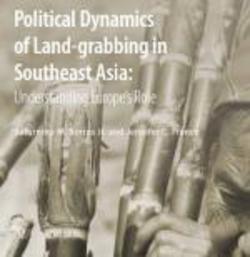The European Union is a significant player in the widespread occurrence of land-grabbing in Southeast Asia; both through its corporate sector and public policies.
Summary
Land-grabbing is occurring at a significant extent and pace in Southeast Asia; some of the characteristics of this land grab differ from those in regions such as Africa. At a glance, Europe is not a high profile, major driver of land-grabbing in this region, but a closer examination reveals that it nonetheless is playing a significant role. This influence is both direct and indirect, through European corporate sector and public policies, as well as through multilateral agencies within which EU states are members. Looking at some of the cases of large-scale land acquisition in Southeast Asia, and the role played by the European Union, we put forward several observations and issues for discussion.
The assumption about the existence of reserve agricultural land (“idle”, “marginal” and “uninhabited”) in the global South that can solve the global food and energy crises is fundamentally flawed.
The official claim by the state over ‘non-private lands’ and its effort to seize these lands undermine and violate the rights of peoples living and working in these geographic spaces.
Land-grabbing leads to dispossession and/or to ‘adverse incorporation’ of people into the emerging enclaves of the global agrofood-feed-fuel complex.
Land-grabbing is currently being carried out by domestic and transnational companies, often with encouragement and support from central governments.
Most of the products produced – food, feed, fuel – are exported or are planned to be exported to other countries, within the circuit and logic of the global industrial agrofood-feed-fuel complex, with trade policies such as those by the EU having important implications.
Transnational companies and their domestic partners, landed elites and bureaucrats, are among those who corner much of the created wealth, with limited positive livelihood impact on farming communities.
Various land policies by bilateral and multilateral agencies, including those that involve European Union or EU member states have direct and indirect implications for the current land-grabbing in the region, ranging from an inability to carry out effectively existing progressive land policies to actually promoting pro-market land policies that help encourage or facilitate land-grabbing.
Contents
Summary
1. Introduction
1.1. Story 1. Cambodia
1.2. Story 2. Indonesia
1.3. Story 3. Philippines
1.4. Three stories, common messages
2. The current Global Land-grab and Southeast Asia
2.1. 'Land-grabbing' in Southeast Asia
2.2. Europe and Land-grabbing in Southeast Asia: Understanding links
3. Conclusions and recommendations
References
Annex 1
Annex 2













